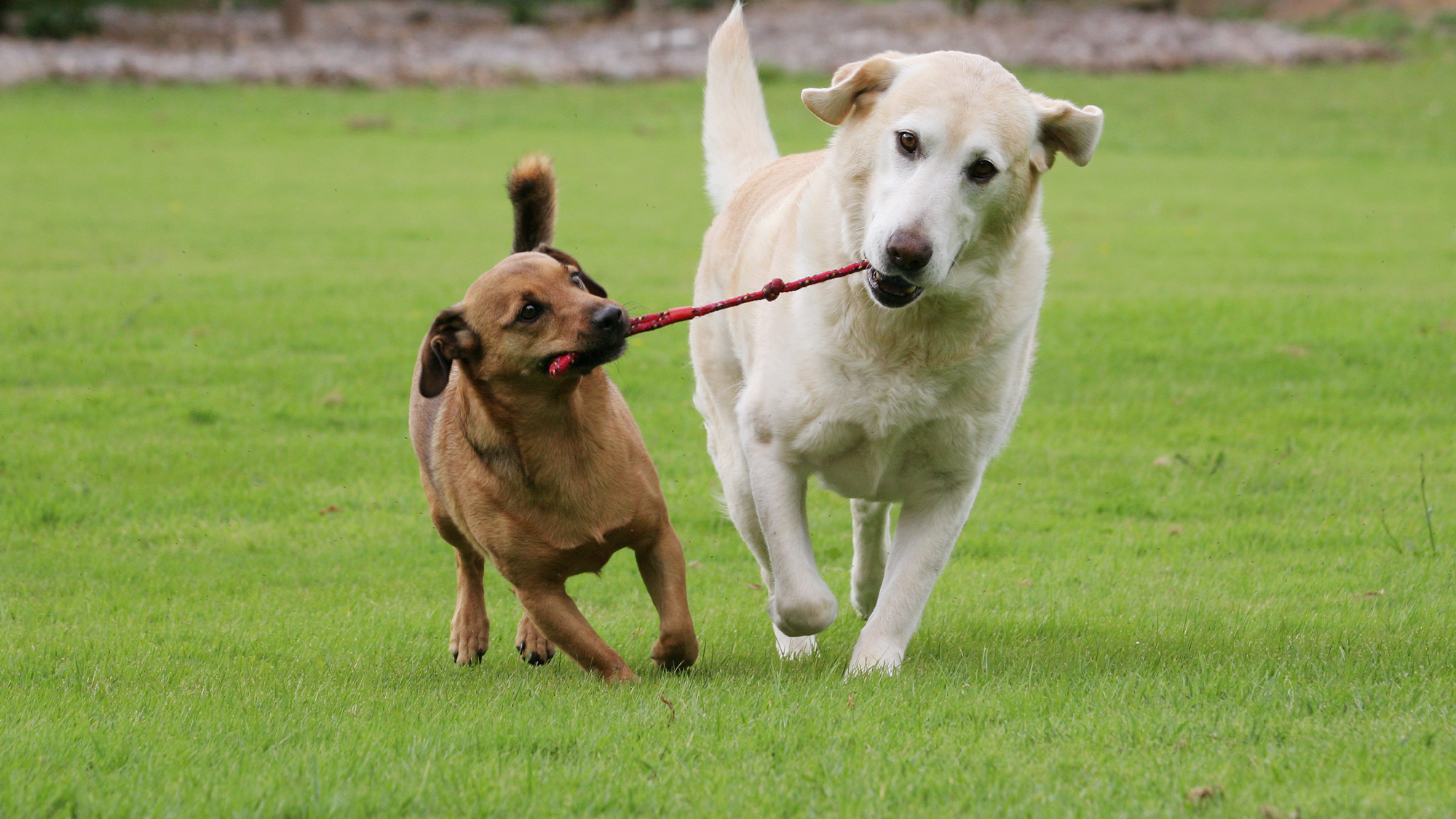

For better or worse, there is pretty much a dog breed for everyone. Whether you’re looking for a dog to pull a sled, protect a house, or simply cuddle up and watch TV with, thousands of years of breeding practices have led to some very diverse breeds. Now, scientists are starting to understand the effects of this breeding the brains and genomes of canines.
Researchers from the National Institutes of Health (NIH) found that the areas of the genome that are related to brain development have variants that may account for some of the behavior differences in different dog breeds. Their findings were published yesterday in the journal Cell, and involved citizen science projects using DNA samples and surveys from dog owners around the world.
[Related: The biggest myth about dog breeds.]
The study mapped out how dog lineages diversified and changed over time by using genomic data from over 4,000 domestic, semi-feral, and wild dogs from multiple data sets. The data included the results of two processes: whole-genome sequencing (which analyzes the entire genome) and single-nucleotide polymorphism (SNP) arrays, which detects a subset of the variation within in a genome.
“We identified 10 major canine lineages and behavioral traits that correlate with these lineages. By looking at the most heavily selected breeds, we can see how each lineage of dog breeds is unique in its genomic variation and behavior,” said Elaine Ostrander, Chief of the Cancer Genetics and Comparative Genomics Branch within NHGRI’s Intramural Research Program, and a co-author of the study, in a statement.
Rather than looking at a single point in time, the timeline mapped out in this study shows how the diversification of dog lineages over hundred of years helps explain how today’s breeds are a result of human selection, according to Ostrander. This selective breeding by humans has created dog breeds that can typically perform different tasks with minimal training, like herding or hunting.
It’s largely been unknown how different dog breeds have these distinct behavioral traits and personalities, as well as how these characteristics and traits trace back to their genomes. The study found that the genomic differences in dog breeds are related to the development of their nervous system. In dogs that herd sheep, the differences in their genomes involved neurons (brain nerve cells) are organized and form neural circuits during the early stages of brain development.
[Related: Dogs know exactly what they’re doing when they give you the ‘puppy eyes’.]
“One of the most surprising findings was that many of the genomic changes that define the major dog lineages can also be found in modern wolves. This indicates that humans co-opted ancient variations among wild ancestors of dogs to create unique types of dogs suited for performing specific tasks,” said Emily Dutrow, a postdoctoral research fellow at the NIH who led the study, in a statement.
In the study, any of the genes involved in axon guidance, a process that determines how how neurons connect to one another in the brain, had been changed in several lineages, particularly for sheepdogs. Since the genes that influence brain development and behavior in both canines and people likely perform in the same way, identifying genetic variation in the human genome corresponding to behavior-related regions in the dog genome might lead to new insights and knowledge about the genetic basis of human behaviors and even some psychiatric conditions, according to the team.
Some of the genes that are associated with different dog breeds may relate back to the to genes that are linked to behavior in other species—like humans.
“The results of this study may point us toward how differences in the human genome can contribute to behavioral diversity among humans. Further research can help us draw a stronger link between genes that are important for behavior in dogs and genes that may play a role in human behavioral conditions,” said Ostrander, in a statement.
However, other studies have found that breed really might not matter as far as behavior. A study published in the journal Science in April found that breed explains just nine percent of dog behavior, after surveying more than 18,000 dogs, about half of which were purebred, and sequenced the DNA of more than 2,000 pooches. It found that while behavioral traits can be passed down through genes, those markers aren’t unique to individual breeds and that every characteristic could be found across breeds.
At the end of the day, each dog has it’s own unique personality, no matter what breed.
